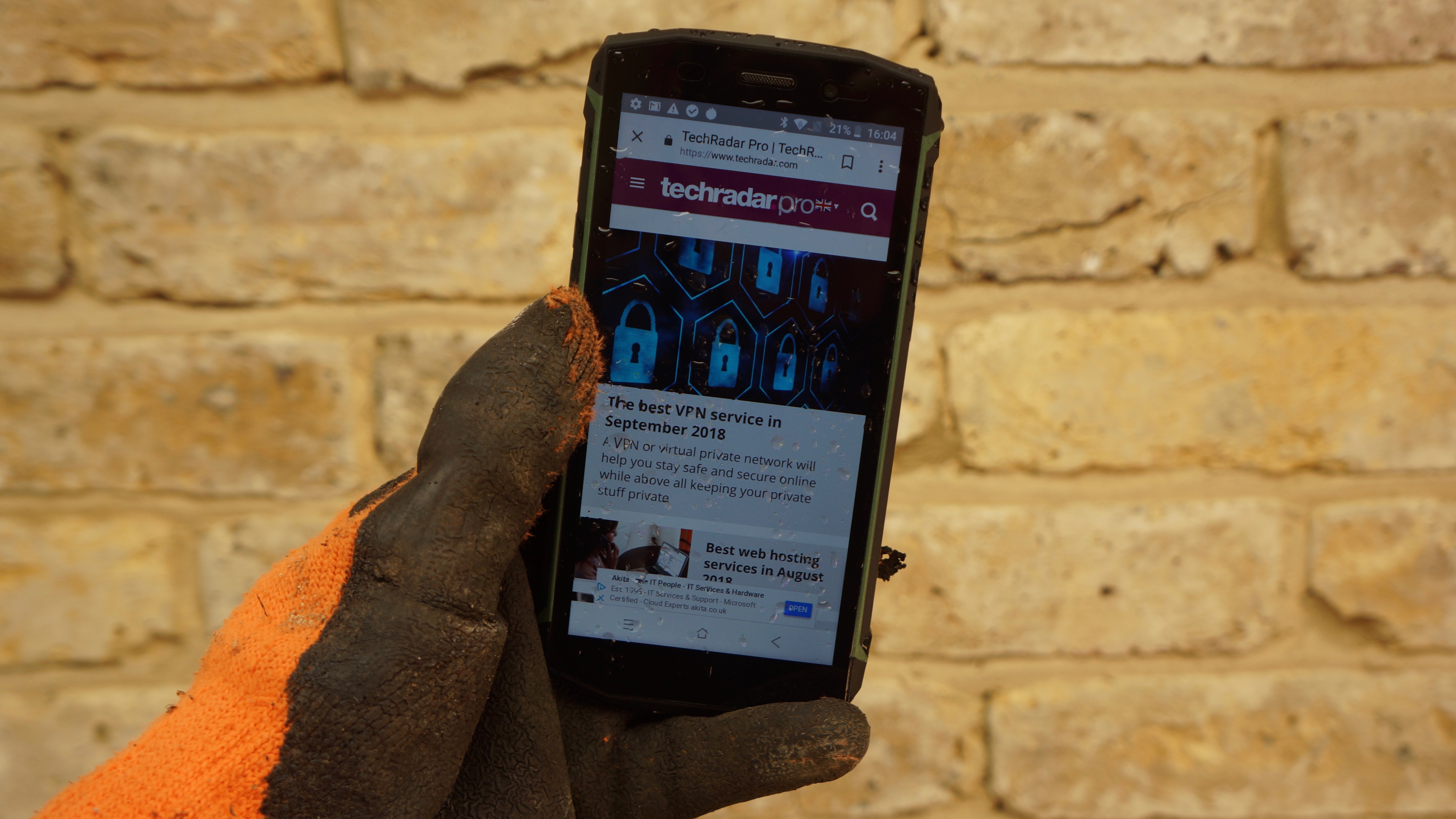Why you can trust TechRadar
In use
Here’s how the Blackview BV5800 performed in our benchmark tests:
Geekbench: 660 (single-core); 1,786 (multi-core); 1,416 (compute)
Antutu: 55,496
PCMark (Work 2.0): 3,167
Passmark: 1,246
Passmark CPU: 48,993
Androbench (sequential): 257 (sequential read); 92 (sequential write)
Androbench (random): 15 (random read); 10 (random write)
3DMark Slingshot: 158
3DMark Slingshot Extreme: 103
3DMark IceStorm: 4,133
HWBot Prime: 2,717
Because of its tactile rubberised casing Blackview BV5800 Pro is a pleasure to use and it feels as though it would survive well in the wild. It is obviously designed to survive the scrapes, dirt and water you’d find on a building site, but it is also easier to use than your average handset when you’re wearing gloves, or up a ladder. For example, you can configure the PTT function button so that with one press and a tap, you are talking to a colleague. Inbuilt face recognition software also allows you to clear the phone’s security without having to take your gloves off.
The inbuilt speakers are quite loud, making it possible to listen outdoors and having two SIM slots made it simple to combine our work and personal accounts in one device. The Blackview BV5800 Pro came with a suite of apps called Outdoor Toolbox, which includes things like a virtual plumbline, a bubble level and compass, which all worked very well on the building site.
The SOS call is also easy to invoke without removing gloves, because it is just a long press of the function button, but thankfully, it’s not so easy that you might call out the rescue services by accident. It’s a pity there isn’t one more hard function button to which you could assign the camera, and/or torch.
The screen can be hard to see in the full glare of the sun because it is not the brightest. At 720x1440, it’s not the sharpest screen either, but this really isn’t an issue. We were very happy with the processing speed too and didn’t experience any freezing, or crashing. At least, not until we tried playing a graphics-heavy game. Asphat 8, for example looked juddery and we wouldn’t recommend 3D gaming on this handset, which didn’t perform well in any of our benchmarks tests.

However, the priority here is battery life and value for money, over pure processor speed so we won’t mark the Blackview BV5800 Pro down for its poor gaming performance. Overall, it performed well in the field and though it feels very heavy and lacks useful features like an optical zoom, its lack of processing power and screen resolution was not a problem.

Final verdict
To justify its existence, a rugged phone has to prove that it’s more useful than a regular phone in a tough case. After all, a case can be taken off when you get back to your desk, whereas a tough phone is always cumbersome. The Blackview BV5800 Pro manages this in a few ways. Firstly, the battery is larger than usual and this is a real advantage when you’re outdoors all day. Plus it charges quickly (in 2.5 hours) and wirelessly if you buy the charger too. There’s a metal button to press to make a PTT call without navigating the on screen menu and stereo speakers loud enough to hear outside. There’s face recognition for unlocking your phone without taking your gloves off too and with Android Oreo onboard, there are plenty of apps to download that can help you with whatever your outdoor job might be.

It’s a pity there isn’t another external function button to assign to whatever app you use the most and an optical zoom would have been great. A little more processing power would be welcome too, but we can’t complain about the speed of everyday apps like Google Maps, which worked well. At this price, it must be tempting for employers to issue reliable phones like this employees that work outdoors, or in adverse conditions.
Sign up to the TechRadar Pro newsletter to get all the top news, opinion, features and guidance your business needs to succeed!
- We've also highlighted the best rugged phones of 2018 in this roundup

Jim has been evaluating printers for more than twenty years and has, to date, written over a hundred reviews for TechRadar Pro. From pocket printers to industrial dye sublimation, Jim has been there, run the tests and printed the t-shirt. His expertise extends to consumables (paper, ink, toner) and his printer buying guides make it easy to compare these essential peripherals.
